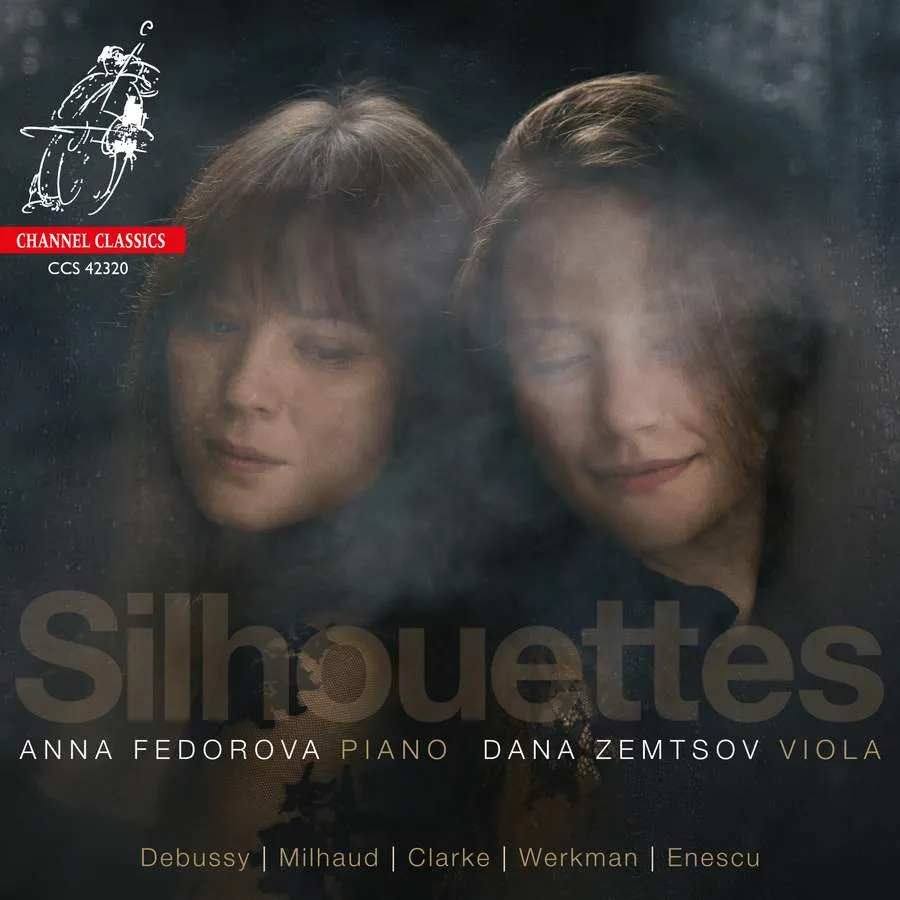
Silhouettes R Clarke: Viola Sonata; Debussy: La plus que lente; Suite Bergamesque – Clair de lune; Beau Soir; Werkman: Suite for Viola and Piano; Milhaud: Viola Sonata No. 1, Op. 240; Enescu: Concert piece for viola & piano Dana Zemtsov (viola), Anna Fedorova (piano) Channel Classics CCS42320 71:45 mins
At times tender, at times athletic, this duo shines in a programme including four rarities of differing value. Enescu's Concert Piece is proficient in the romantic style he espoused, for me much to be preferred to the dry Hindemith-plus of Arne Werkman's Suite, full of fourths and fifths that forsake colour for academic strenuousness. Far more alluring – and for me surprising – is Milhaud's First Viola Sonata of 1944. Here for the most part he sheds his experiments with polytonality in basing the music on 'unpublished and anonymous 18th-century themes', with delightful results.
The give and take between the two instruments, never predictable, reminds us of the composer's Parisian training with the great counterpoint teacher André Gedalge. I warm less to the transcription of Debussy's piano piece Clair de lune, whose charm depends on the piano's unified sonority, with sympathetic vibrations between registers. But the best music is Rebecca Clarke's Sonata of 1919, balancing English folk song modality (echoes of The Lark Ascending) against French whole tone harmony, and permeated by a masterly control of mood and texture, with a memorable five-note figure heard throughout.
Three errors need correcting in the running order. The durations of tracks three and 12 are respectively 10:55 and 4:24, not 4:00 and 1:33, while the date 1878 for Debussy's song ‘Beau soir’ has long been discredited: Paul Bourget didn't publish his poem until 1882, and it's possibly Debussy didn't set it until 1891, when the song was published. So nothing precocious here.
Roger Nichols